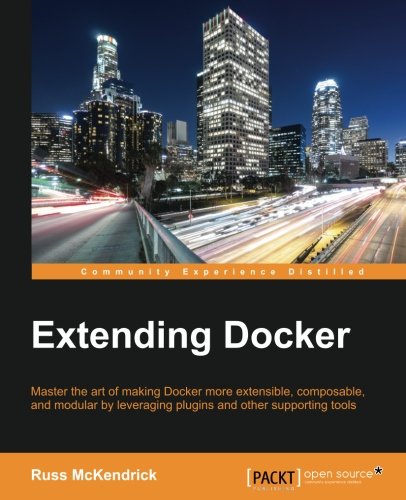

Most ebook files are in PDF format, so you can easily read them using various software such as Foxit Reader or directly on the Google Chrome browser.
Some ebook files are released by publishers in other formats such as .awz, .mobi, .epub, .fb2, etc. You may need to install specific software to read these formats on mobile/PC, such as Calibre.
Please read the tutorial at this link: https://ebookbell.com/faq
We offer FREE conversion to the popular formats you request; however, this may take some time. Therefore, right after payment, please email us, and we will try to provide the service as quickly as possible.
For some exceptional file formats or broken links (if any), please refrain from opening any disputes. Instead, email us first, and we will try to assist within a maximum of 6 hours.
EbookBell Team

4.7
56 reviewsWith Docker, it is possible to get a lot of apps running on the same old servers, making it very easy to package and ship programs. The ability to extend Docker using plugins and load third-party plugins is incredible, and organizations can massively benefit from it.
In this book, you will read about what first and third party tools are available to extend the functionality of your existing Docker installation and how to approach your next Docker infrastructure deployment. We will show you how to work with Docker plugins, install it, and cover its lifecycle. We also cover network and volume plugins, and you will find out how to build your own plugin.
You'll discover how to integrate it with Puppet, Ansible, Jenkins, Flocker, Rancher, Packer, and more with third-party plugins. Then, you'll see how to use Schedulers such as Kubernetes and Amazon ECS. Finally, we'll delve into security, troubleshooting, and best practices when extending Docker.
By the end of this book, you will learn how to extend Docker and customize it based on your business requirements with the help of various tools and plugins.
What you will learnRuss McKendrick is an experienced solution architect who has been working in IT and related industries for the better part of 23 years. During his career, he has had varied responsibilities in a number of industries, ranging from looking after an entire IT infrastructure to providing first-line, second-line, and senior support in client-facing and internal teams for corporate organizations.
Russ works almost exclusively with Linux, using open source systems and tools across dedicated hardware, virtual machines to public and private clouds at Node4 Limited, where he heads up the Open Source solutions team.
Table of Contents